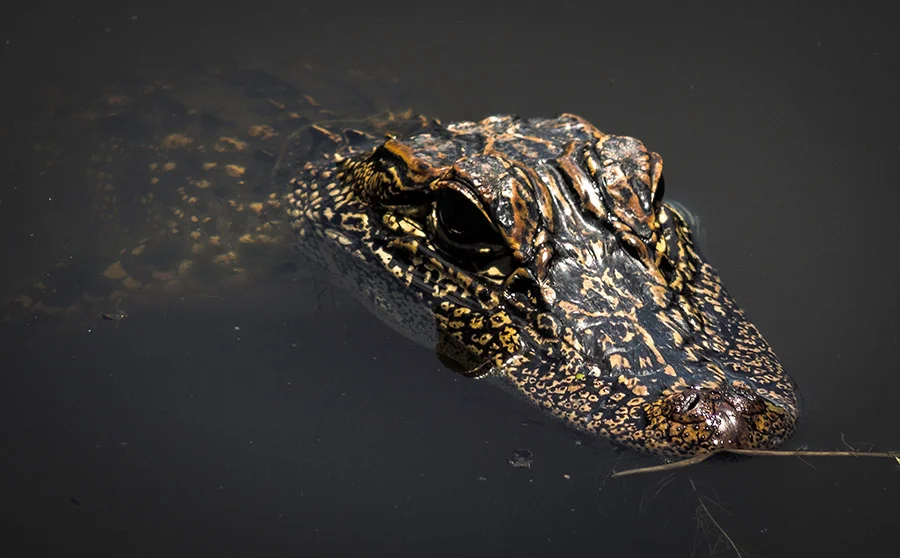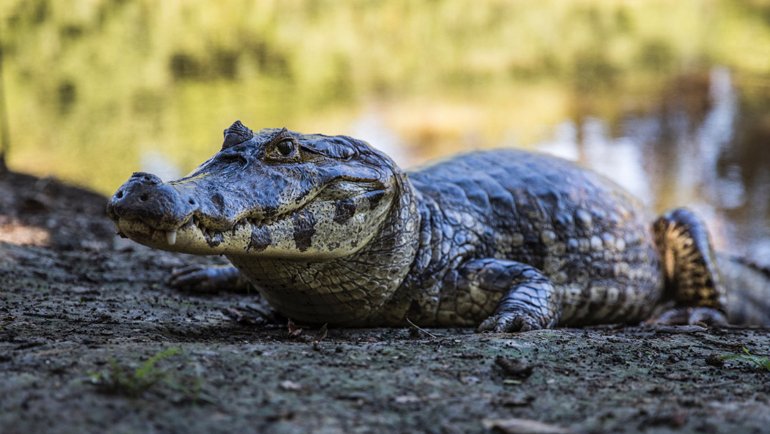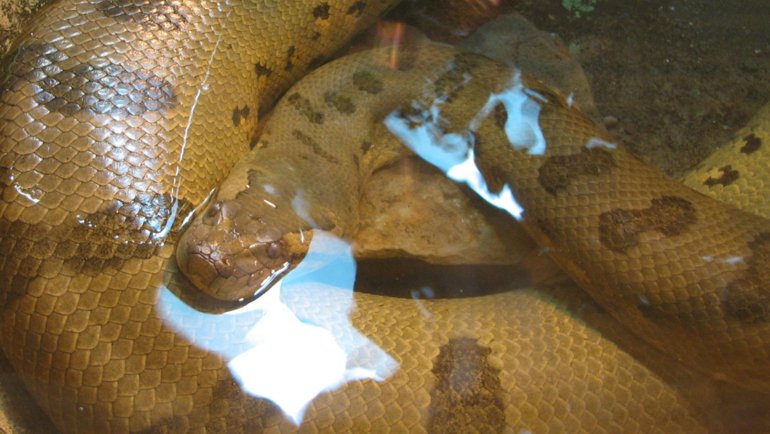Within the vast realm of the animal kingdom, every species has its unique mode of communication. From the melodic songs of birds to the haunting calls of whales, nature is replete with distinctive sounds.
Among these is the surprisingly endearing chirp of the baby alligator, a sound that stands in stark contrast to the deep, resonant bellows of its adult counterparts. Let’s delve into this auditory world of baby alligators and uncover the mysteries behind their chirps.
Characteristics of Baby Alligator Sounds
Sound Description
If you’ve ever been near a freshwater marsh or watched a documentary about alligators, you might have heard a sound akin to a high-pitched whistle or the peep of a bird. This isn’t a misplaced bird or some unknown marsh inhabitant but the chirping of baby alligators. Soft and repetitive, these chirps sound almost out of place amidst the dense foliage and swampy waters.
Frequency and Pitch
Baby alligator chirps are high-pitched, generally falling within a range of about 3-5 kHz. These sounds are distinctly different from the deeper, rumbling calls of adult alligators. The sharpness of the chirp ensures it stands out in the noisy wetland environment, making it easier for a mother alligator to detect.
Variations
While the basic structure of the chirp remains consistent, subtle variations can occur. As the alligator grows, its chirps might gradually deepen before transitioning into the more familiar growls and hisses of juvenility and, eventually, adulthood. However, in the early stages of their life, chirping remains the primary vocalization.
Purpose and Importance of Chirping
Pre-Hatching Calls
Even before they break free from their eggs, baby alligators begin to chirp. These pre-hatching calls signal the mother that her offspring are ready to emerge. In response, she might carefully excavate the nest to assist her young, ensuring a smoother transition into the world outside.
Post-Hatching Communication
After hatching, the chirping doesn’t stop. These sounds play a vital role in maintaining a bond between the siblings, known as a “pod,” and their mother. Chirping helps the pod stay together, especially when moving from one location to another or during nocturnal activities.
Distress Signals
Chirps aren’t just about bonding or announcing a hatching. When a baby alligator feels threatened or uncomfortable, its chirps become more frequent and urgent. These distress signals alert the mother, who is fiercely protective of her young, prompting her to come to the rescue or investigate the source of discomfort.
Mother’s Response to Baby Chirps
Protective Nature
Among the many traits of the alligator, maternal protectiveness stands out as one of the most profound. A mother alligator’s keen sense of hearing and deep bond with her offspring means she can often detect even the softest chirp from her babies.
Upon hearing a distress call, she will quickly move toward the source of the sound, prepared to confront any potential threats. Her reaction is swift and decisive, be it against potential predators or any perceived danger to her young.
Feeding Calls
While baby alligators are known to feed on small insects and crustaceans, there are moments when they might emit chirps signaling hunger or the need for guidance in finding food. The mother, in response, can lead her young to areas rich in prey or even assist by capturing and providing larger prey items to her offspring.
Safety and Shelter
The wetlands and marshes where alligators reside can be a maze of challenges for a baby alligator. Their chirps not only signal distress but can also act as a beacon for the mother to guide her young.
Whether it’s navigating through dense marsh grass, seeking shelter during inclement weather, or simply reuniting with the pod, the baby’s chirps and the mother’s subsequent vocal or physical responses help ensure the young alligator’s survival.
Comparison with Other Reptile Offspring Sounds
- Baby Turtles: Much like alligators, baby sea turtles make sounds within their eggs. While the exact purpose is still a topic of research, these sounds might play a role in synchronizing hatching or signaling to their siblings or mothers.
- Geckos: Gecko hatchlings and juveniles have a variety of chirps and squeaks, which they use to communicate with their siblings and to deter potential predators. The nature of these sounds varies, with some being used as distress calls and others for more general communication.
- Crocodiles: Close relatives to the alligator, baby crocodiles also produce chirping sounds, especially when in distress or seeking the attention of their mother. The sound is eerily similar to that of baby alligators, emphasizing the close genetic relationship between the two species.

How to Identify Baby Alligator Sounds in the Wild
Listening for the Distinct Chirp: Baby alligator chirps are short, high-pitched, and often likened to the sound of a squeezing rubber toy. When near water bodies in regions inhabited by alligators, listen for these repetitive chirps, especially during the breeding season when baby alligators are abundant.
Time and Place: Dawn and dusk are particularly active times for alligators. While adult alligators are more vocal during the night, baby alligator chirps can often be heard during the early evening or morning.
Observing Behavior: Often, a chirping baby alligator may be accompanied by an alert and protective mother. Spotting an adult alligator in close proximity to where the chirping is emanating from is a good indication that babies are near.
Safety First: Always remember that while baby alligators may sound cute, they are wild animals. An approaching human could be seen as a threat, especially by a protective mother. Maintain a safe and respectful distance, use binoculars for observing, and avoid attempting to approach or handle them.
Frequently Asked Questions
How often do baby alligators chirp?
Baby alligators can chirp frequently, especially when they feel threatened, are hungry, or want to communicate with their mother or siblings. The frequency can vary based on individual needs and environmental factors.
Do baby alligators make any other sounds besides chirping?
Chirping is the primary sound made by baby alligators. As they grow and mature, they will start producing other vocalizations typical of juvenile and adult alligators.
How long before a baby alligator stops chirping and starts making adult sounds?
As alligators grow and approach their juvenile stage, usually around their second or third year, their vocalizations will start to change, evolving into the deeper, more resonant calls of adult alligators.
Can other adult alligators respond to baby chirps?
The primary respondent to a baby alligator’s chirp is typically its mother. However, other adult alligators in the vicinity may also recognize the distress calls. The reaction of non-maternal adults can vary, and not all reactions might be protective.
Other Articles About Alligators
- American Alligator: Characteristics, Diet, Facts & More [Fact Sheet]
- What Eats An Alligator: Top 12 Alligator Predators
- What Do Alligators Eat? – All About Their Diet
- Are Alligators Friendly to Themselves or Even Humans?
- Caiman vs. Alligator: Distinguishing the Reptilian Relatives
- Alligators – 30 Amazing Facts, Info & Pictures
- How Fast Can an Alligator Run? Can a Human Outrun an Alligator?
- How Long Do Alligators Live? Understanding the Alligator Lifespan
- When Are Alligators Most Active? Decoding Their Mysterious Behavior



